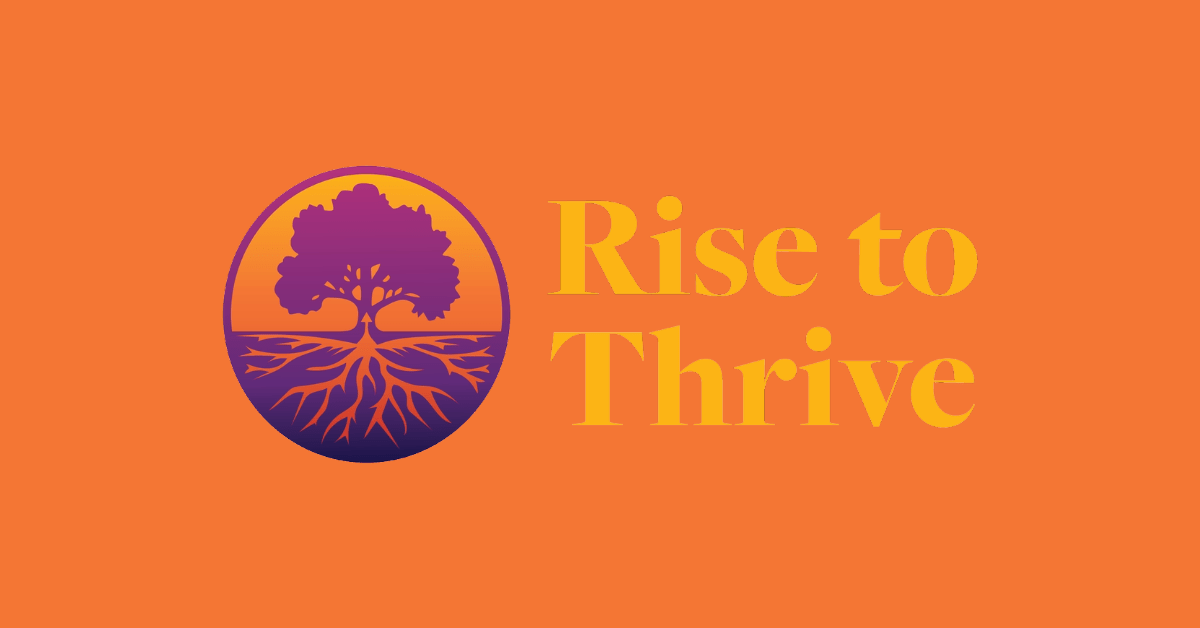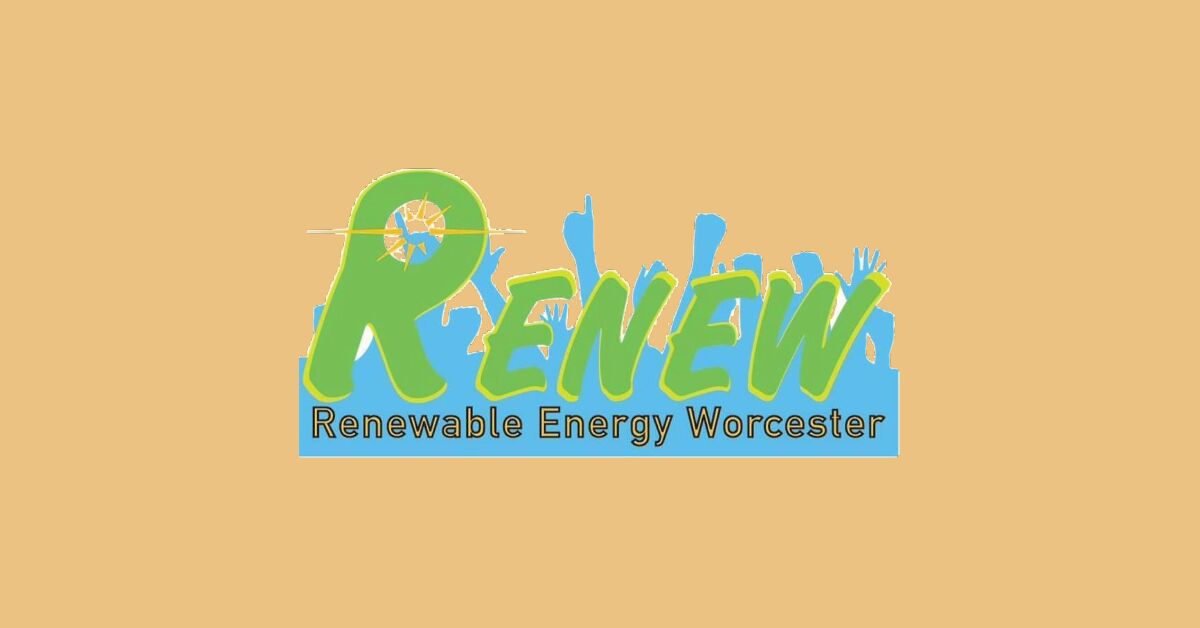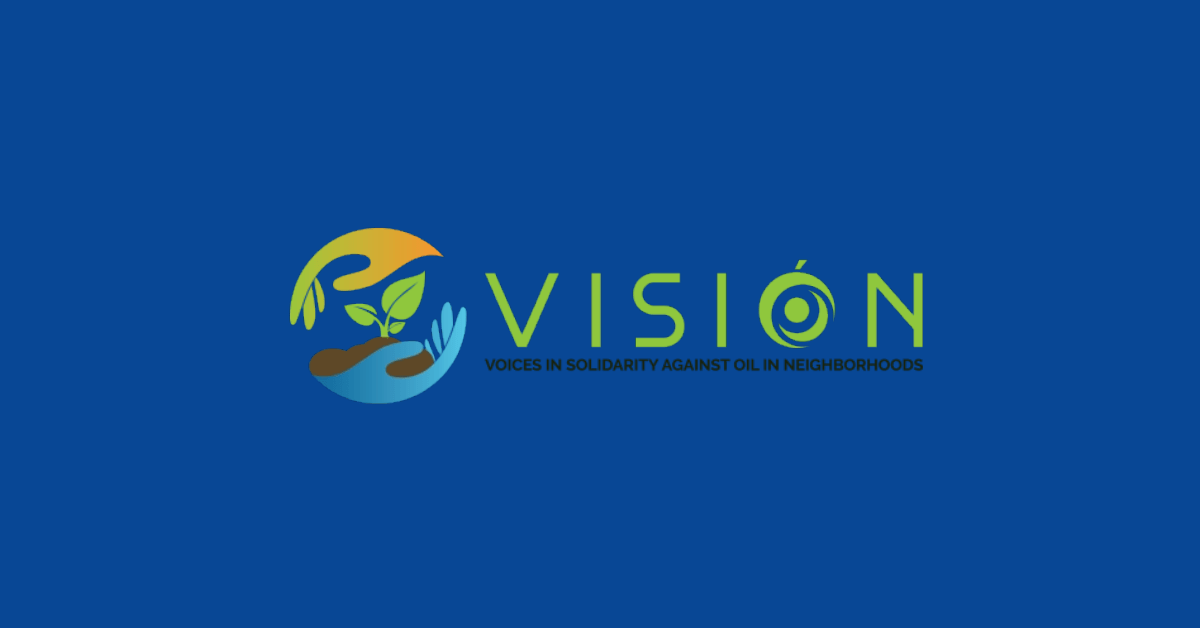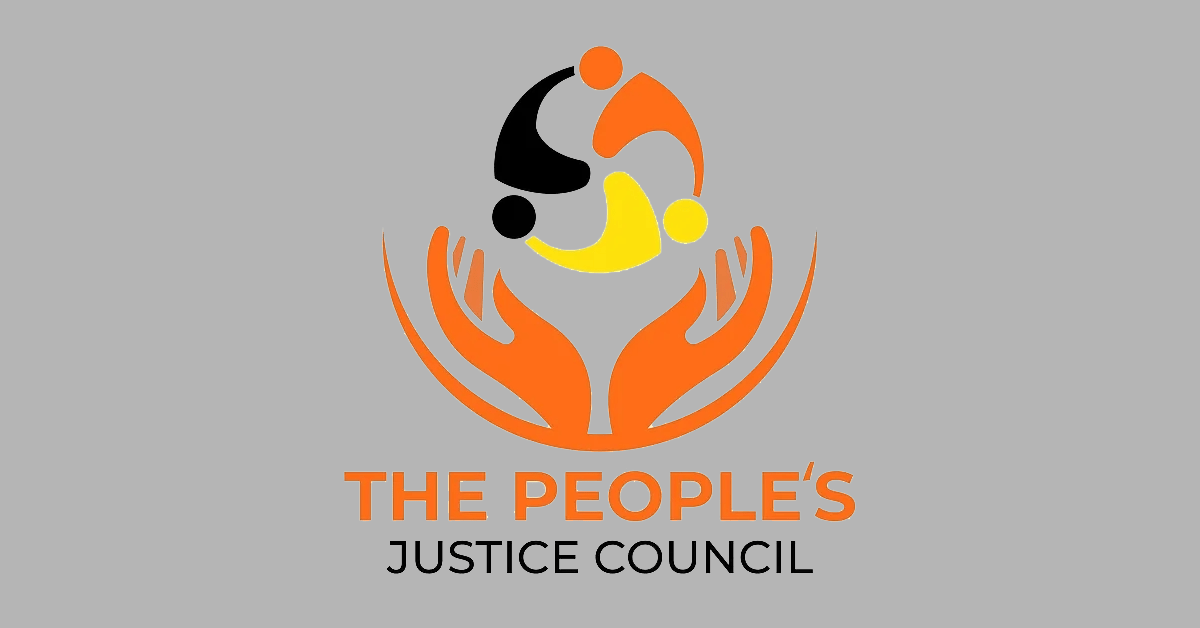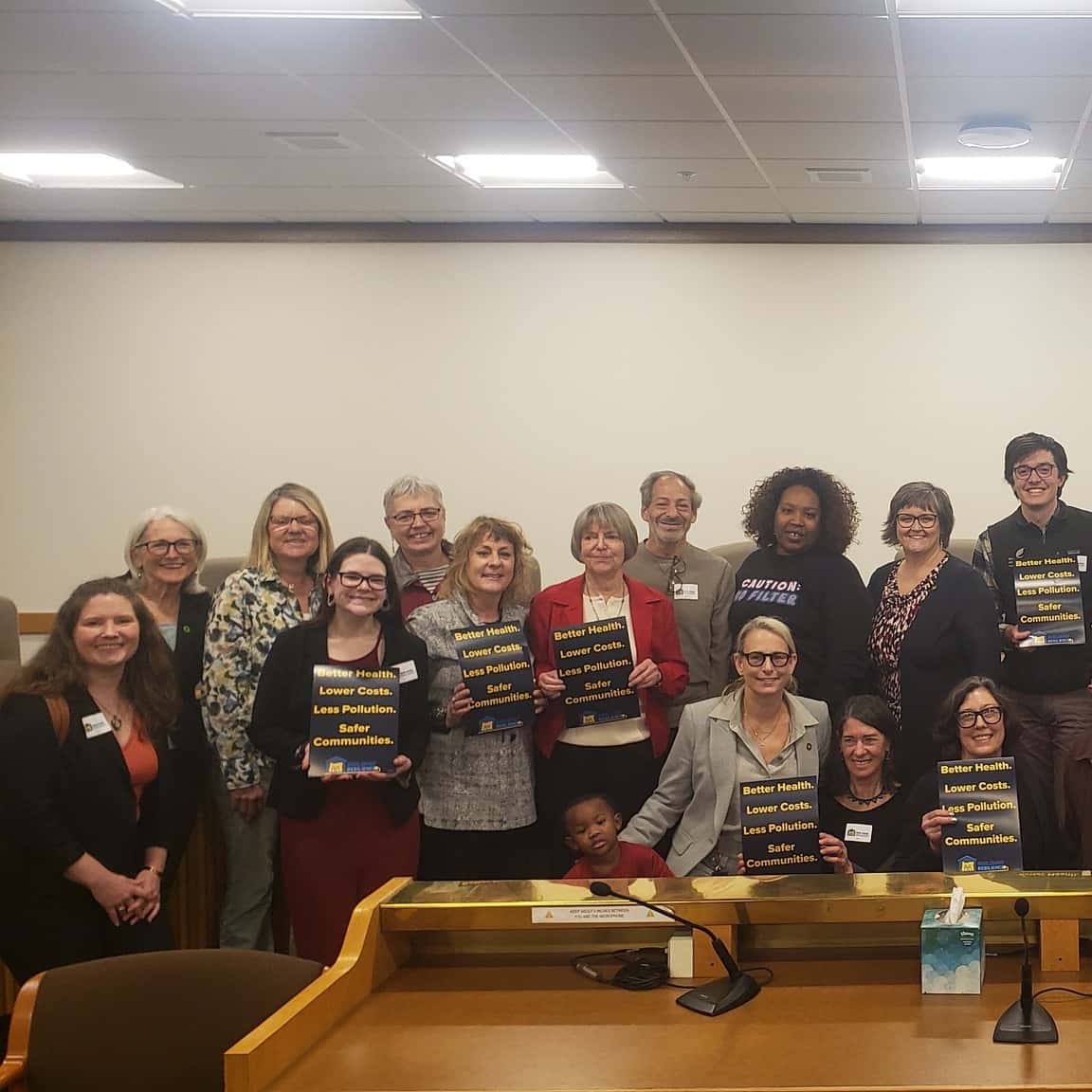
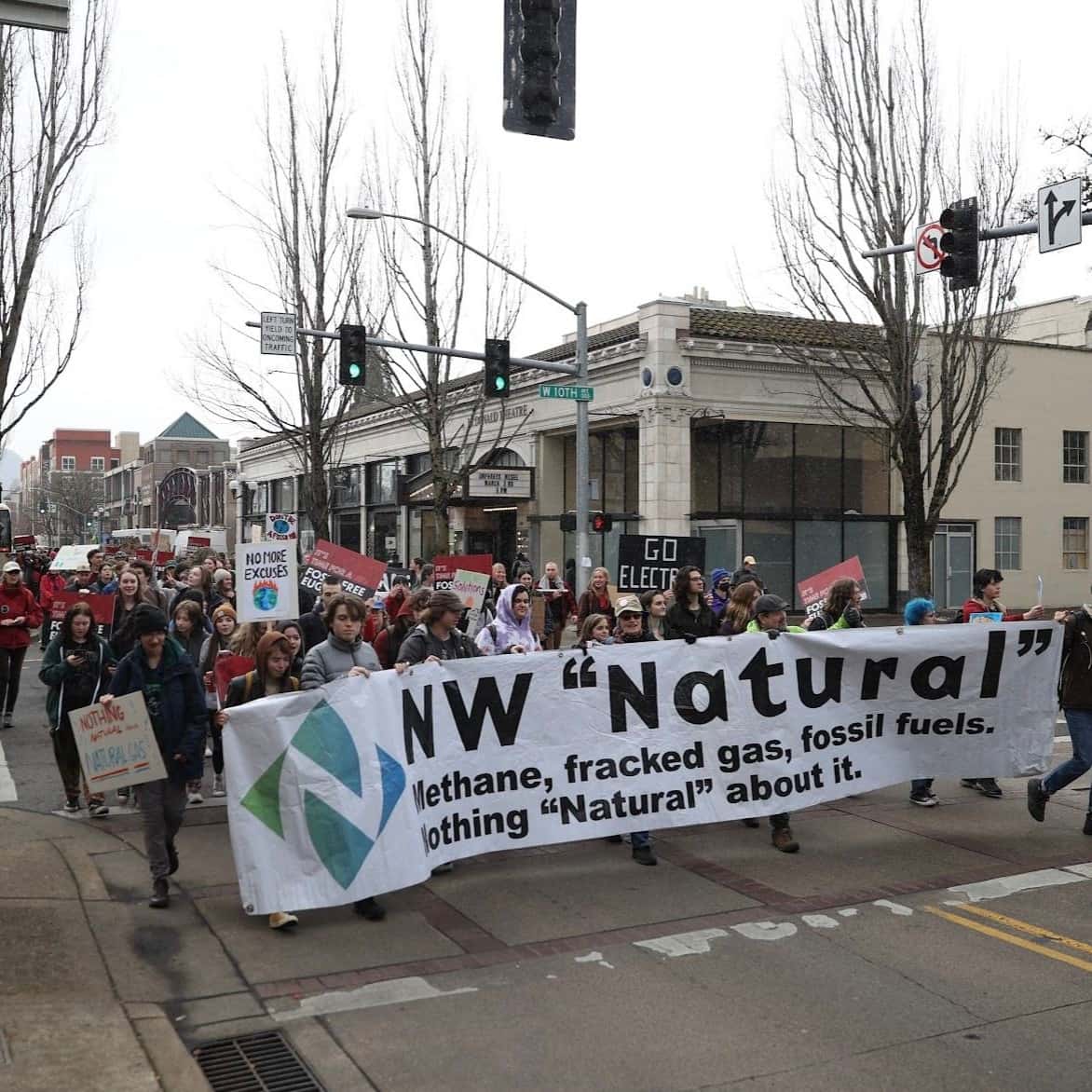
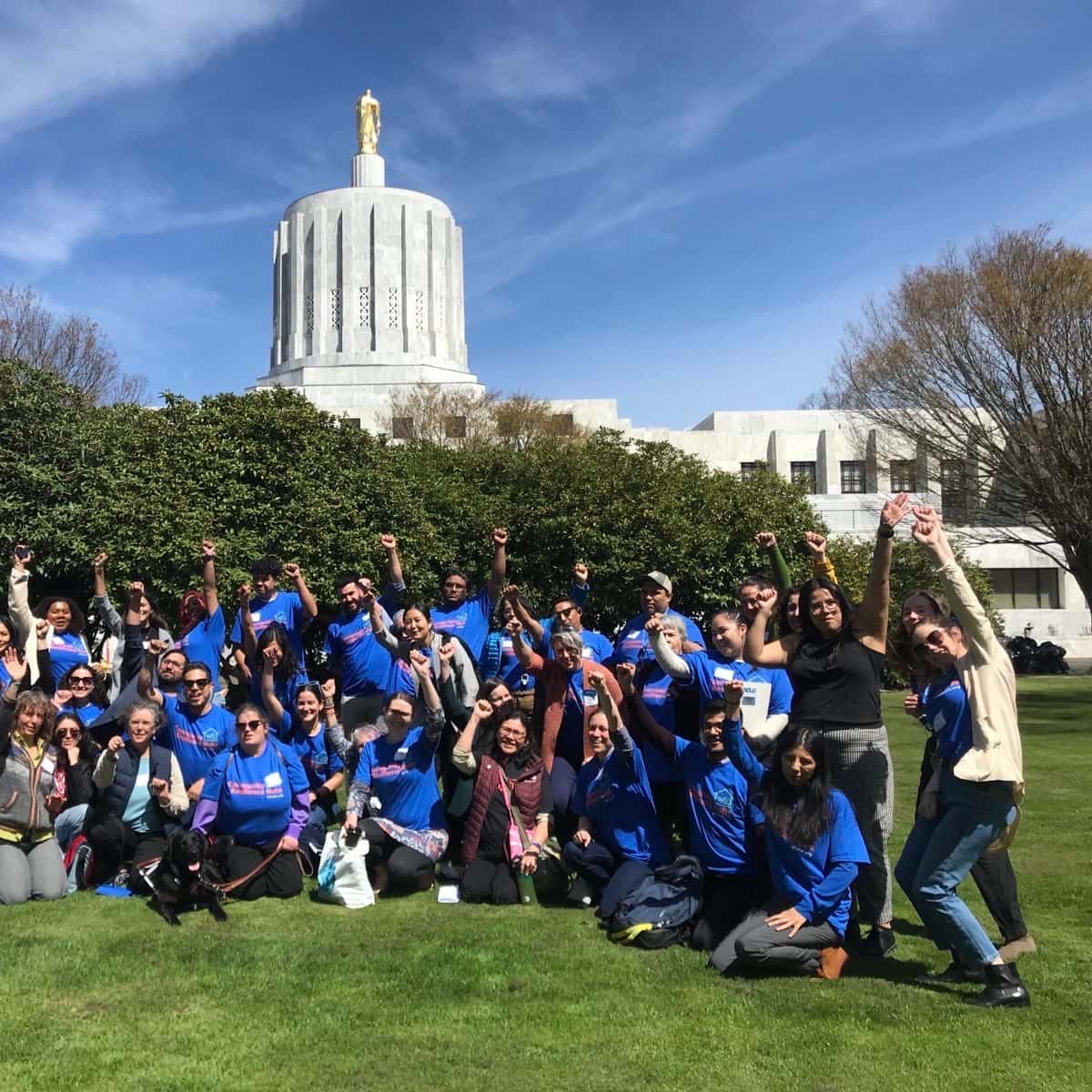
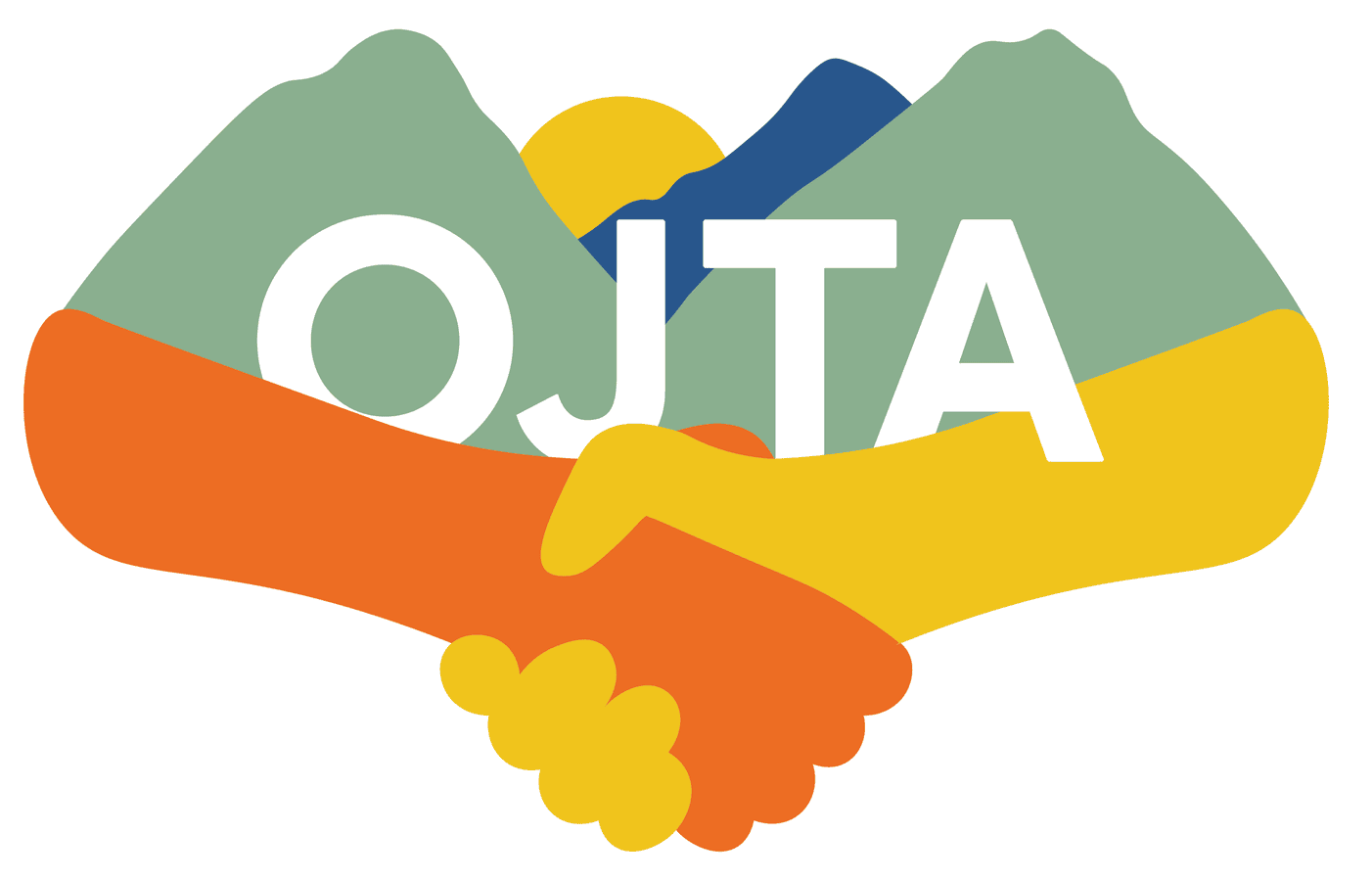
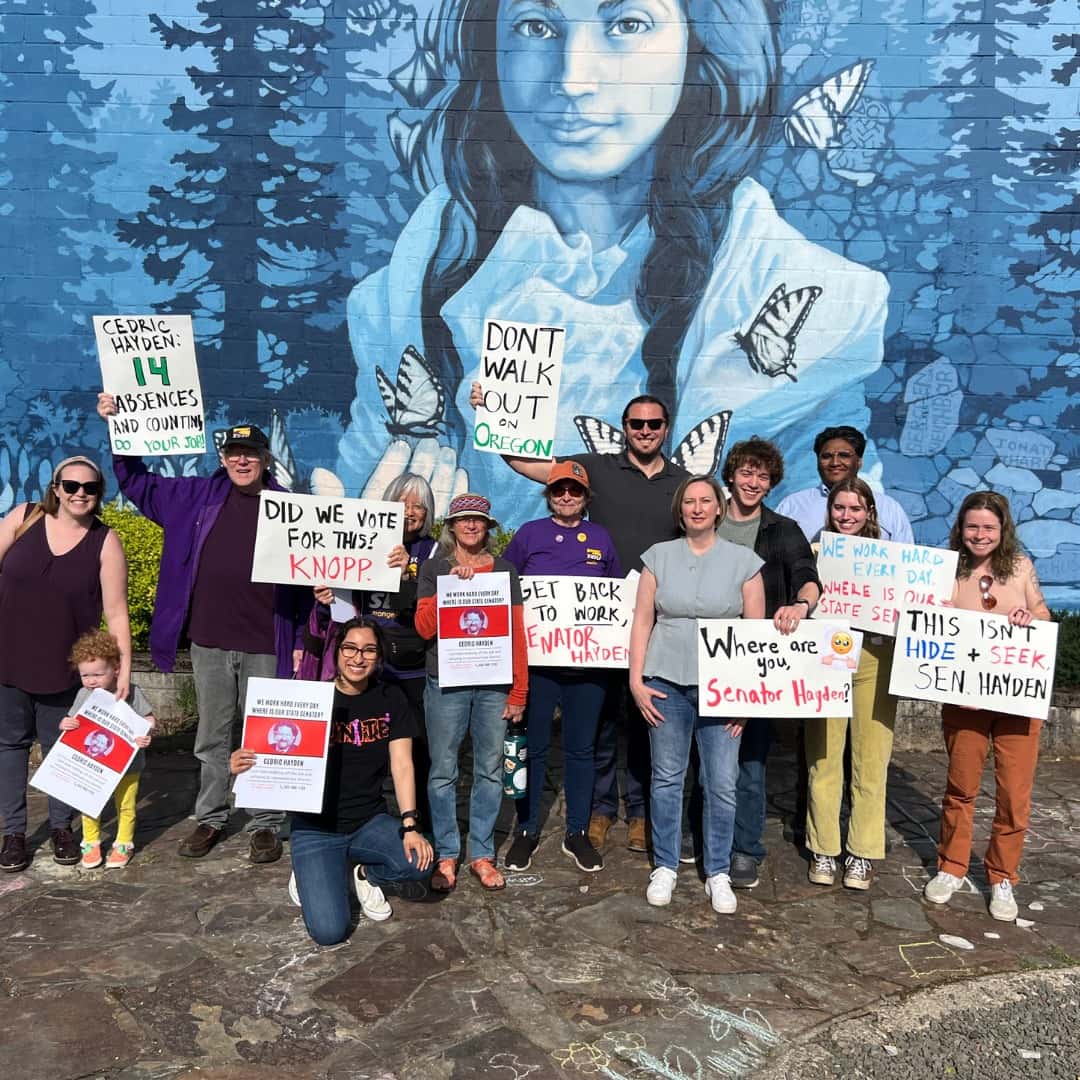
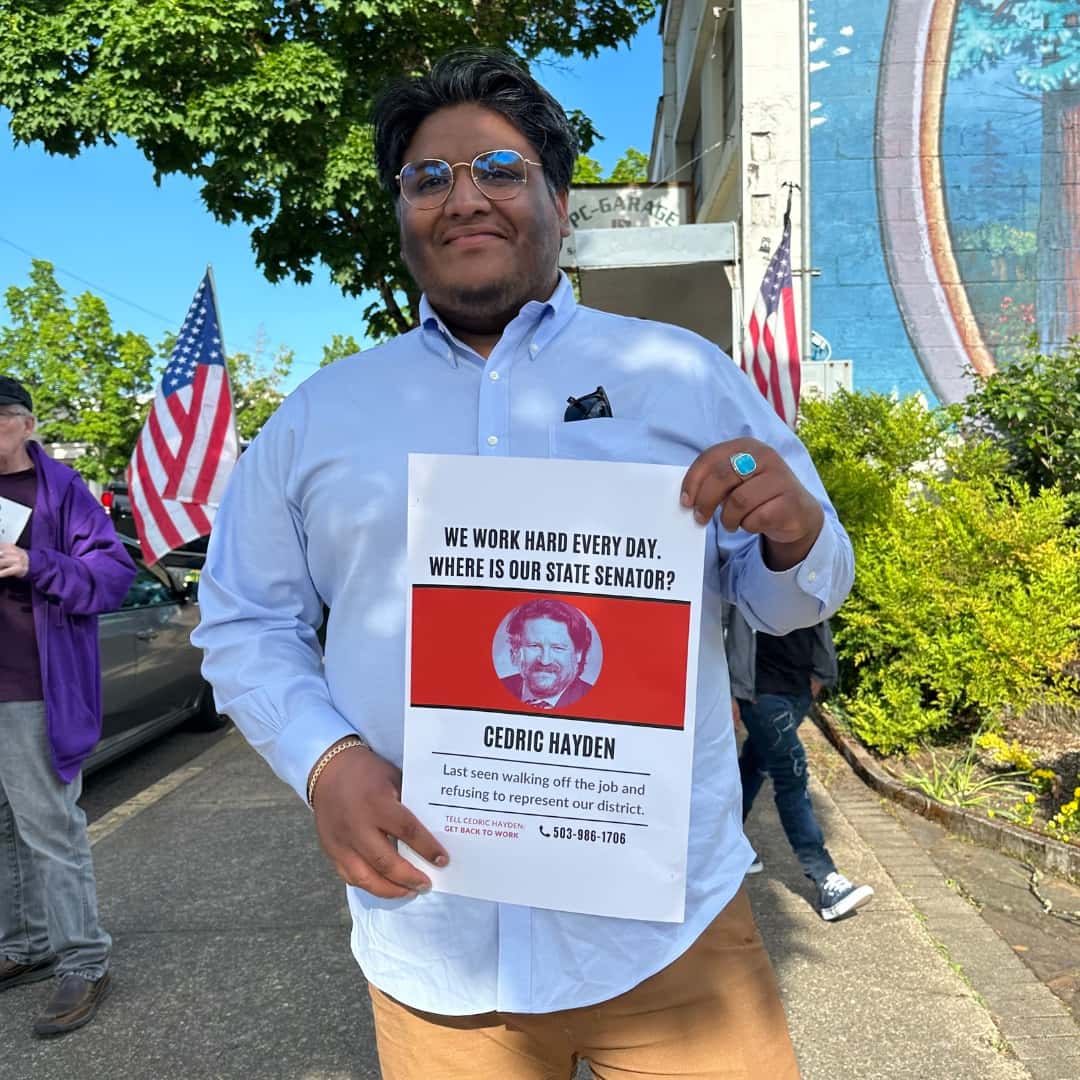
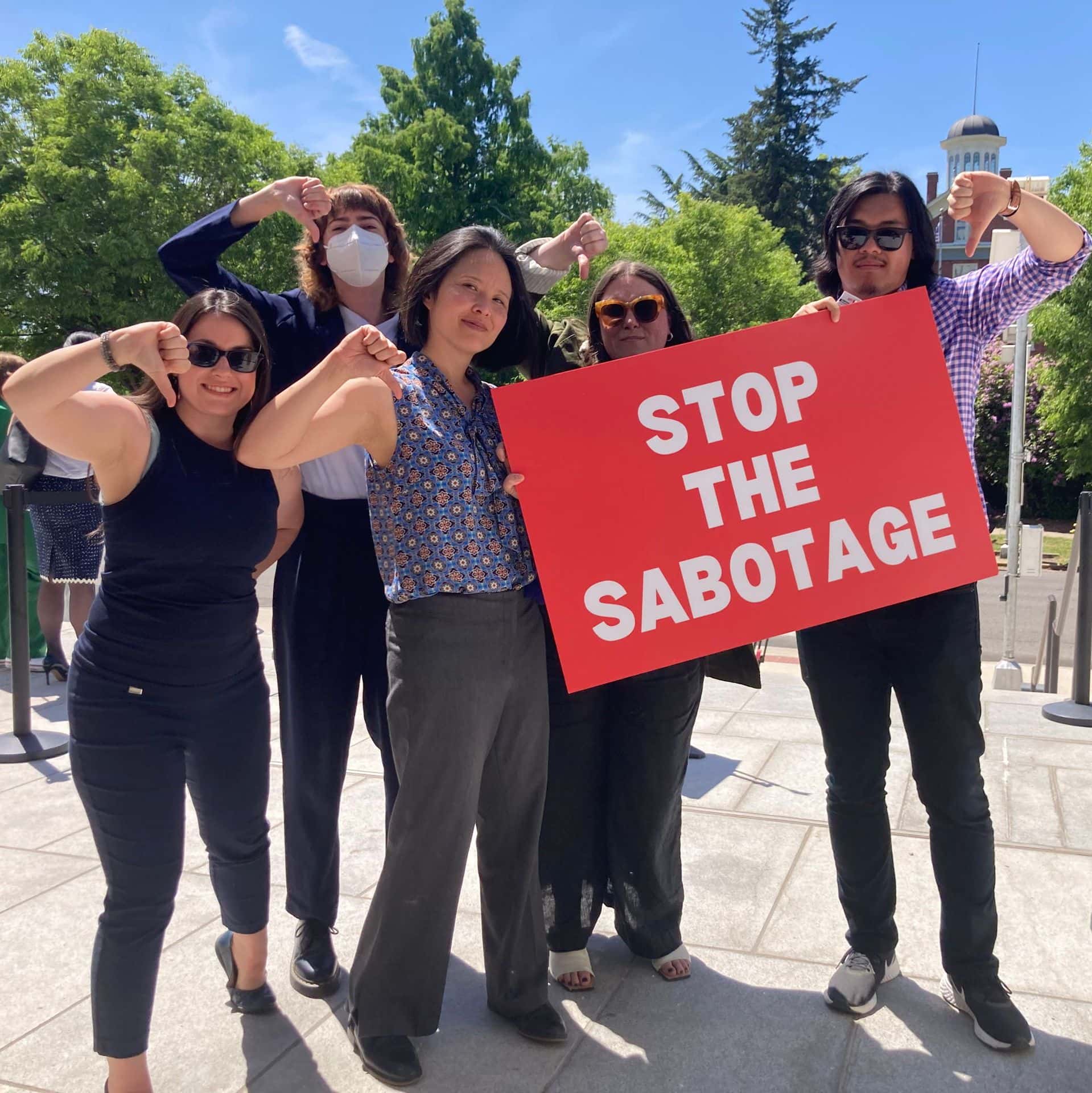
Oregon Just Transition Alliance (OJTA)
Portland, OR
In 2021, Climate Nexus launched an Energy Equity Regranting Project to help resource organizations, tribes, and community leaders on the frontlines of climate change and the impactful work they are doing to fight the gas industry. The energy equity transition grants prioritize grassroots groups with an annual budget of $1 million or less to boost their efforts in racially, ethnically, gender, and culturally diverse communities across the United States and at the intersections of public health and energy justice.
In our first year running the program, nine organizations received grants ranging from $20,000 to $40,000, including Oregon Just Transition Alliance, whose work is detailed below.
Overview
In the summer of 2020, OJTA went on a Frontline Community Listening Tour, asking people across the state, what do you want to see in an Oregon Green New Deal? What do you think we can accomplish together in the next decade? In January 2021, they released an updated Oregon Green New Deal. This policy platform is in progress as they continue to seek input from frontline communities across the state.
Activities
Strategic Planning
OJTA hired a strategic planner and held a coalition-wide retreat to determine future policy priorities for energy and environmental justice, whether centered on electrifying energy in Oregon buildings and homes or stopping the use of fracked gas. The result of OJTA’s strategic planning process was the Oregon Green New Deal policy agenda that set forth a vision for Oregon to address multiple intersecting crises— economic, climate change, public health, and racial injustice—through a comprehensive approach. The statewide agenda follows the vision of the federal Green New Deal, which was introduced to Congress in 2018.
Legislative Wins
OJTA had three significant policy gains over the past few months due to strategic and tactical grassroots advocacy efforts.
- The Oregon legislature passed HB 4077, Environmental Justice for All, to help the state identify patterns of pollution and climate burdens, identify disadvantaged and vulnerable communities, and assess environmental threats. The bill created the Environmental Justice Council (EJC) to advise the governor and natural resource agencies on environmental justice concerns. It provides funding for data collection, analysis, and research to determine environmental impacts on low-income, rural neighborhoods, people of color, and other impacted communities. HB 4077 directs the EJC to develop a mapping tool to assess environmental, health, and socioeconomic disparities. The device will layer together data such as air emissions, ozone levels, and toxic hazards with health-related data and socioeconomic information such as linguistic isolation and income levels to help state agencies better understand the impacts of environmental disparities. Data from the mapping tool would be accessible to lawmakers, community organizations, and the public to assist in environmental program development, implementation, and funding decision-making.
- The passage of the Farmworker Overtime legislation (HB 4002) recognizes that fair pay is a crucial step to increasing community resilience as Oregonians face more and more climate crisis-fueled disasters and extreme weather events. Starting in 2023, farmworkers will begin earning overtime pay after 55 hours of work, and over the next few years, overtime pay will start after 40 hours of work like other Oregon workers.
- The Emergency Heat Relief Bill (SB 1536) provides access to affordable, efficient, and safe heating and cooling during extreme weather events. A broad coalition of stakeholders focused on public health, housing, and environmental justice united successfully to expand access to cooling for low-income Oregonians less than nine months after a deadly heat wave.
Lessons Learned
Climate Nexus spoke with OJTA the day after the tragic events in Uvalde, Texas. The Executive Director, Joel Iboa, shared quite eloquently what the hard realities are for frontline communities: it is about survival because for these communities the work is so much bigger than fighting the construction of an LNG terminal, it is literally about life and death.
OJTA has learned that it’s a privilege to talk about methane gas, given how much of a looming threat white supremacy and white nationalism has also been in Black and Brown communities in Oregon. They are trying to figure out better ways to support frontline-led organizations, whether it be through pass-through funding or connecting them to funders.
Future and Sustainability
OJTA is planning on having an in-person summit this fall to begin laying the groundwork for a building electrification campaign. They have recently signed on to co-author a research report exposing the lies of Northwest Natural and the hidden health costs of using gas in homes.


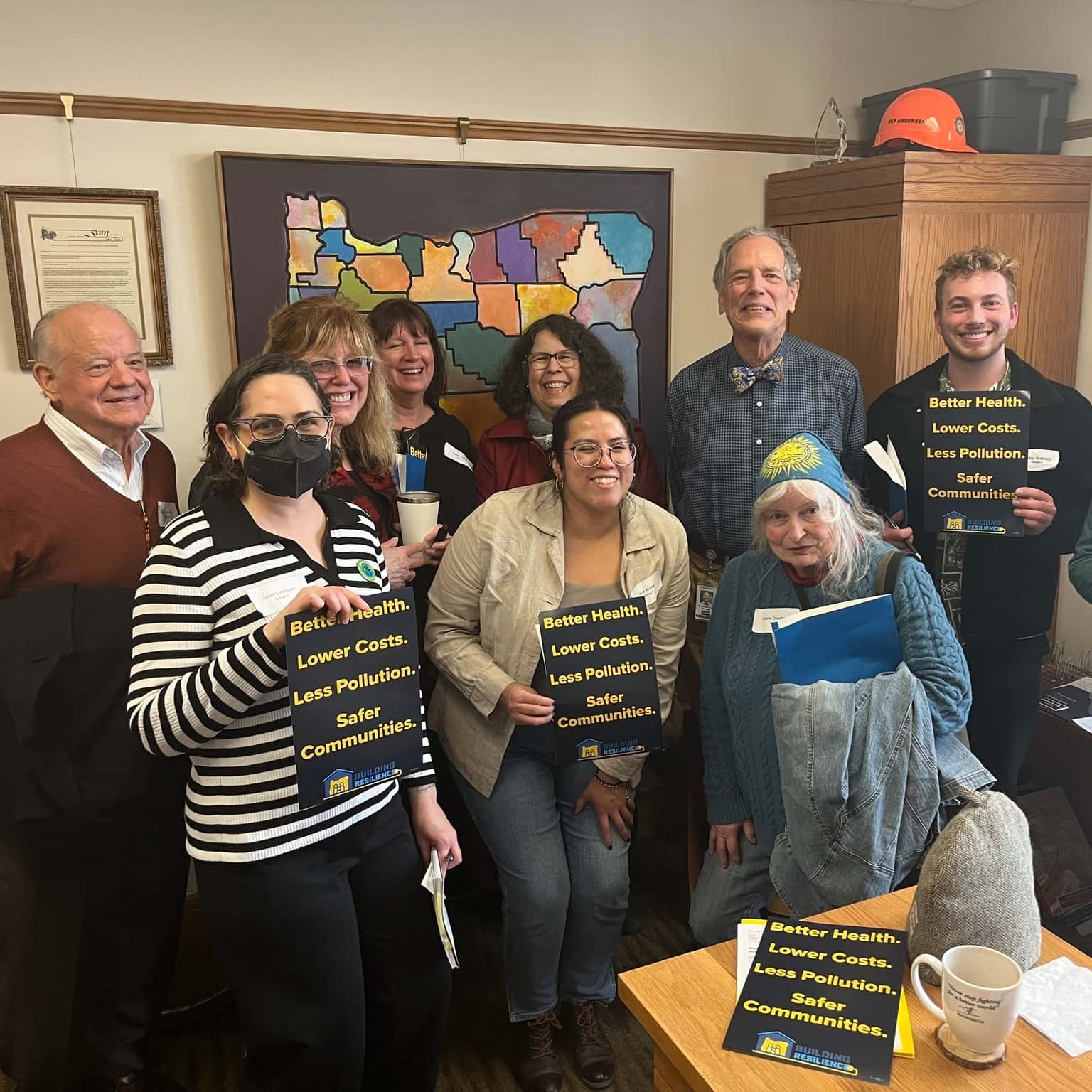




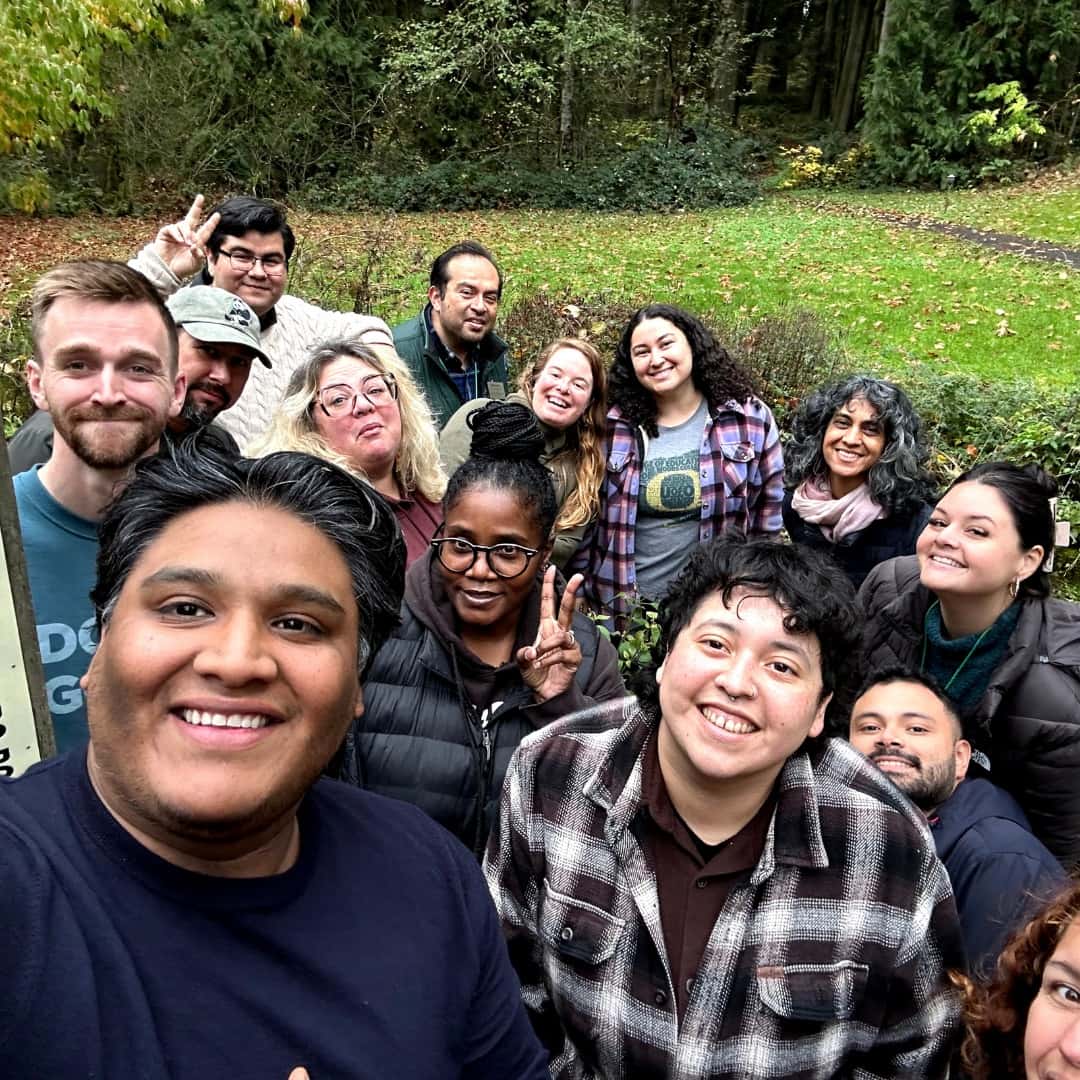
Filter Grantees by Year:
-

Earth Care
Earth Care is fighting false solutions like hydrogen and carbon capture, and is building public awareness of the health dangers of fracking.
-

Sacred Places Institute for Indigenous Peoples
The Sacred Places Institute for Indigenous Peoples is a forum for tribal communities to protect sacred sites and advance environmental priorities.
-

Rise to Thrive
Rise to Thrive builds community among Women and Femmes of Color across the country to catalyze a shift of power within the environmental movement.
-

RENEW Worcester
RENEW Worcester advances energy projects that prioritize communities and the buildout of affordable, renewable energy.
-

Viet Voices
Viet Voices educates San Diego’s Vietnamese community about sustainability, environmental health, and accessible housing.
-

Society of Native Nations
The Society of Native Nations works in Texas and California to contest the oil, gas, and petrochemical buildout from the Permian Basin to the Gulf Coast.
-

The Vessel Project of Louisiana
The Vessel Project is a mutual aid organization supporting people in Calcasieu Parish by meeting their emergency needs efficiently and without barriers.
-

VISIÓN
VISIÓN works with community organizations to establish health and safety buffer zones between oil wells and homes and schools.
-

7 Directions of Service
7 Directions of Service is fighting to cancel the Mountain Valley Pipeline’s Southgate Extension and to advance Rights of Nature laws.
-

People’s Justice Council
PJC organizes not-for-profit electricity coops around Montgomery and is organizing their constituency around energy and environmental justice.
-

Washington Interfaith Network (WIN)
Washington Interfaith Network is working to help low- and moderate income DC households switch from fossil fuels to clean and efficient electric heating.
-

Mississippi Citizens United for Prosperity
MCUP advances energy equity in Black and Indigenous communities by training women in clean energy contracting and project management.




